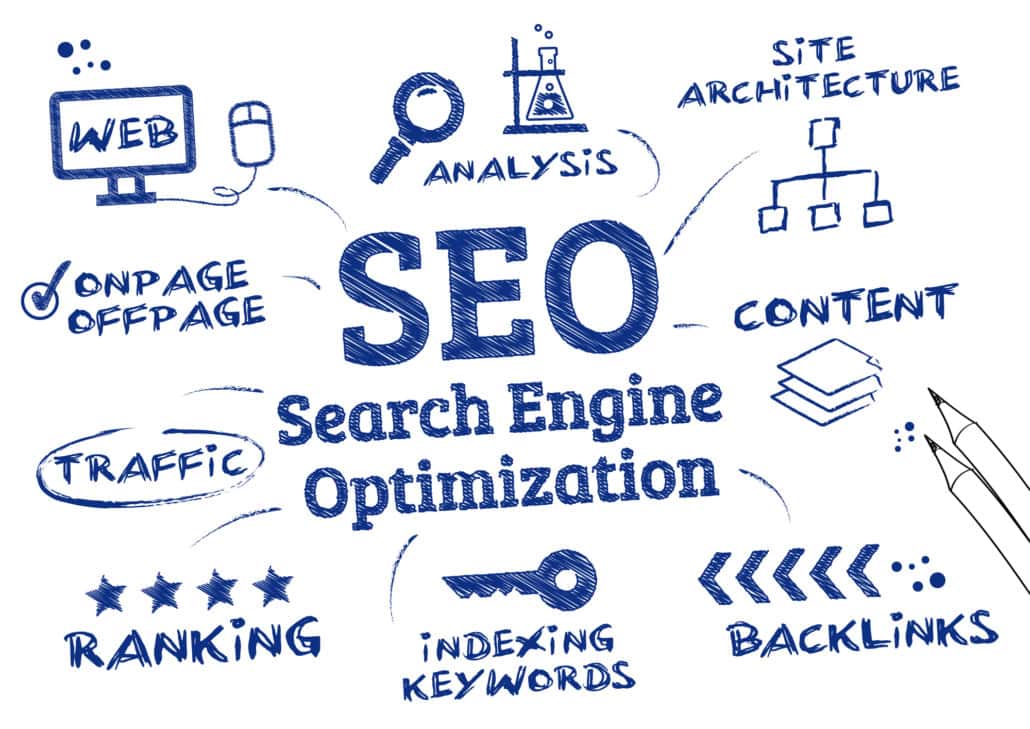Mastering Link Building: Strategies, Mistakes to Avoid, and Best Practices

Link building is a crucial element in the world of SEO. It’s not just about quantity; quality matters too. Building strong, relevant links can significantly impact a website’s visibility and credibility on search engines.
In today’s digital landscape, understanding the nuances of link building is essential for businesses aiming to improve their online presence. By strategically acquiring backlinks from reputable sources, websites can enhance their authority and climb higher in search engine rankings.
This article delves into the intricacies of link building, providing valuable insights and strategies to help you navigate this fundamental aspect of SEO successfully. Stay tuned to discover how you can leverage link building to boost your website’s performance and achieve sustainable growth in the competitive online sphere.
Key Takeaways
- Link building is essential for SEO, emphasizing the importance of both quality and quantity of links to enhance a website’s visibility and credibility on search engines.
- Effective link building strategies involve acquiring backlinks from reputable sources to improve domain authority, increase organic traffic, and climb higher in search engine rankings.
- Different types of link building strategies include internal (within a website), external (backlinking from other sites), and editorial (earning natural backlinks through valuable content).
- Common mistakes to avoid in link building include neglecting quality over quantity, using diverse anchor text, avoiding link schemes, ensuring relevance and context in linking efforts, and conducting regular backlink analysis.
The Importance of Link Building in SEO
In the realm of SEO, link building stands as a fundamental pillar for enhancing a website’s visibility and credibility on search engines. Both the quality and quantity of links play crucial roles in determining a website’s ranking in search results.
Understanding the significance of link building is paramount for businesses aiming to improve their online presence. Acquiring backlinks from authoritative and relevant sources not only boosts a website’s credibility but also signals its relevance to search engines, thereby improving its chances of ranking higher.
Effective link building strategies are essential for navigating the complex landscape of digital marketing. By incorporating white-hat techniques and focusing on acquiring natural backlinks from reputable websites, businesses can establish a strong foundation for sustainable growth in the highly competitive online environment.
The strategic implementation of link building practices can lead to increased organic traffic, higher search engine rankings, and improved domain authority. By consistently engaging in ethical link building, businesses can expand their reach, attract targeted audiences, and establish themselves as trusted authorities within their respective industries.
Embracing the power of link building is not just about securing external links; it’s about creating valuable connections that enhance a website’s credibility and relevance in the eyes of both users and search engines alike. With a well-rounded approach to link building, businesses can pave the way for long-term success in the ever-evolving digital landscape.
Types of Link Building Strategies

Internal Link Building
Internal link building focuses on creating links within a website’s own content, connecting different pages to enhance navigation and user experience. By strategically placing internal links, websites can distribute link equity across various pages, boost the visibility of important content, and improve overall site structure. It helps search engines understand the hierarchy and relevance of pages within a website, leading to better indexing and ranking in search results.
External Link Building
External link building, also known as backlinking, involves acquiring links from other websites to point back to your site. These external links act as votes of confidence for your content, signaling to search engines that your website is reputable and trustworthy. Quality external links from authoritative sites are crucial for improving domain authority, increasing organic traffic, and enhancing search engine rankings. Implementing an effective external link building strategy requires outreach efforts to secure relevant and high-quality backlinks that align with your website’s niche.
Editorial Link Building
Editorial link building focuses on earning natural backlinks by creating valuable and engaging content that compels other websites to link to it organically. This approach emphasizes producing high-quality content that resonates with target audiences, making it more likely to be shared and referenced by other online sources. Editorial backlinks are considered some of the most valuable in SEO due to their organic nature, indicating genuine endorsement and relevance from external sites. By prioritizing editorial link acquisition through compelling content creation, websites can attract authoritative links that contribute significantly to their SEO efforts.
Common Mistakes to Avoid in Link Building

When it comes to link building, there are several common mistakes that businesses and website owners should steer clear of. Making these errors can hinder the effectiveness of SEO efforts and potentially harm a site’s online visibility and credibility. It’s important to be aware of these pitfalls to ensure that link building campaigns yield positive results. Below are some key mistakes to avoid:
- Neglecting Quality Over Quantity: One of the most prevalent mistakes in link building is prioritizing quantity over quality. Simply acquiring a large number of links without considering their relevance or authority can backfire. It’s crucial to focus on obtaining high-quality backlinks from reputable sites rather than pursuing numerous low-quality links.
- Ignoring Diverse Anchor Text: Using the same anchor text repeatedly for all backlinks is a mistake that can appear unnatural to search engines. It’s essential to vary anchor text strategically, incorporating relevant keywords while maintaining a natural link profile. Diversifying anchor text helps improve the organic ranking potential of linked pages.
- Engaging in Link Schemes: Participating in link schemes or manipulative practices violates search engine guidelines and can result in penalties or loss of rankings. Buying links, exchanging excessive reciprocal links, or engaging in automated link-building tactics are examples of activities that should be avoided at all costs.
- Overlooking Relevance and Context: Securing backlinks from websites that are not relevant to your industry or content can diminish the value of those links in the eyes of search engines. Building links from contextually relevant sources enhances their impact on SEO performance and contributes positively to a site’s authority within its niche.
- Neglecting Regular Backlink Analysis: Failing to monitor and analyze the performance of acquired backlinks is a common oversight in link building strategies. Regularly assessing the quality, status, and impact of backlinks allows for identifying any toxic links that could harm rankings and taking corrective actions promptly.
By steering clear of these common mistakes, businesses can enhance the effectiveness of their link building initiatives, improve their site’s SEO performance, and establish a strong foundation for long-term online success.
Best Practices for Effective Link Building
Quality and quantity of links play a crucial role in boosting a website’s visibility and credibility on search engines. Businesses must grasp the significance of link building to enhance their online presence by acquiring backlinks from reputable sources. Employing white-hat techniques is essential for effective link building, enabling businesses to navigate the intricate digital marketing landscape successfully.
Strategic implementation of link building strategies can result in increased organic traffic, higher search engine rankings, and improved domain authority. By consistently engaging in ethical link building practices, businesses can expand their reach, attract targeted audiences, and establish themselves as trusted authorities within their industries. Creating valuable connections through link building enhances a website’s credibility and relevance, paving the way for long-term success in a competitive digital environment.
Various types of link building strategies, including internal, external, and editorial link building, are essential components of a comprehensive SEO approach. Internal link building focuses on enhancing navigation and improving site structure by creating links within a website’s own content. External link building involves acquiring backlinks from other websites to endorse a site’s credibility and boost domain authority. Editorial link building emphasizes earning natural backlinks through high-quality content creation that attracts organic links.
Avoiding common mistakes in link building is paramount to maintaining SEO effectiveness and enhancing online visibility. Neglecting quality over quantity, using diverse anchor text appropriately, avoiding link schemes, ensuring relevance and context in linking efforts, as well as conducting regular backlink analysis are critical aspects to consider when implementing successful link-building campaigns.
Conclusion
Mastering link building is a crucial aspect of any successful SEO strategy. By understanding the significance of quality and quantity in acquiring backlinks, businesses can significantly boost their online visibility and credibility. Implementing effective link building tactics, particularly through ethical white-hat techniques, is key to navigating the competitive digital marketing landscape. Strategic link building efforts can result in increased organic traffic, improved search engine rankings, and enhanced domain authority. By establishing valuable connections and consistently engaging in legitimate practices, businesses can solidify their position as industry leaders and attract targeted audiences. Embracing link building as a means to enhance website relevance and credibility is essential for long-term success in today’s digital environment.
Frequently Asked Questions
What is link building in SEO?
Link building in SEO is the process of acquiring hyperlinks from other websites to your own. These backlinks are crucial for improving a site’s credibility, domain authority, and search engine rankings.
Why is link building important for SEO?
Link building is essential for SEO because it helps search engines discover new web pages and determine how well a page should rank in search results. Quality backlinks from reputable sites signal to search engines that your content is valuable and relevant.
What are the different types of link building strategies?
There are various types of link building strategies, including internal linking (within your own website), external linking (backlinking from other sites), and editorial linking (earning natural backlinks through high-quality content).
What are some common mistakes to avoid in link building?
Common mistakes to avoid in link building include focusing on quantity over quality, neglecting diverse anchor text, engaging in link schemes, overlooking relevance and context, and failing to regularly analyze backlinks.
What are best practices for effective link building?
Best practices for effective link building include prioritizing both quality and quantity of links, using white-hat techniques, implementing strategic linking strategies (internal, external, editorial), and avoiding key pitfalls that can hinder SEO efforts.





